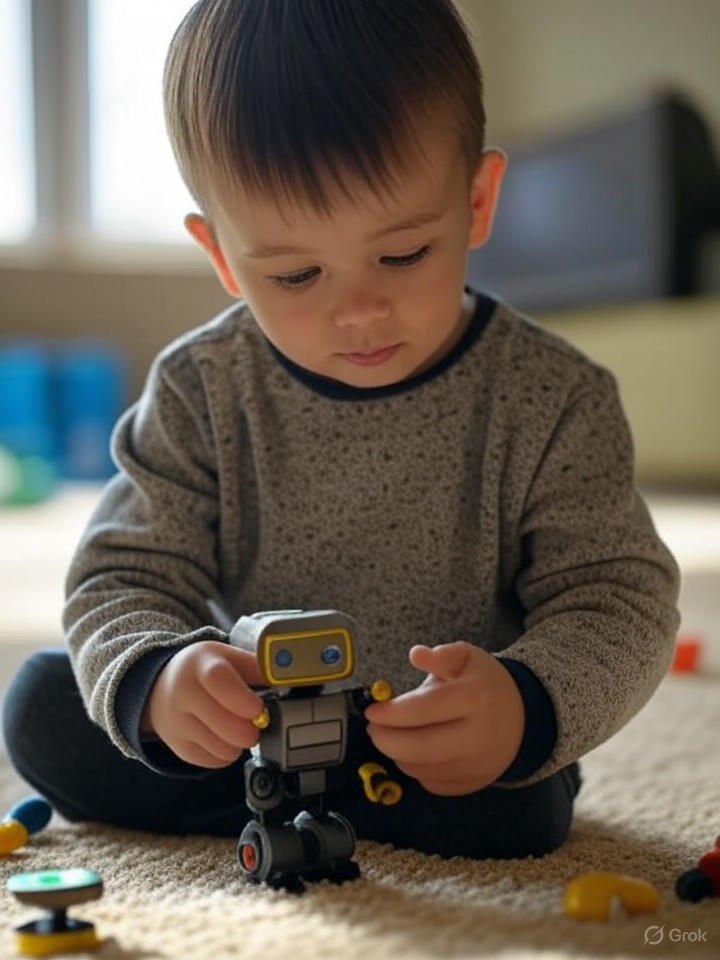Invasion of the AI Playmates
The latest wave of AI toys from China, such as BubblePal and FoloToy, is not just about fun and games. These toys, now infiltrating markets in the US, Canada, UK, Brazil, Germany, and Thailand, are part of a larger strategy to extend China’s surveillance capabilities globally. Rui Ma from AlphaWatch.AI points out that the Chinese market for educational electronics for children is well-established, a market ripe for embedding advanced surveillance tools under the guise of play. The expansion into international markets suggests an agenda to normalize AI surveillance in the everyday lives of children worldwide, turning playrooms into data collection hubs.
FoloToy CEO Kong Miaomiao’s admission that they are targeting ‘early adopters curious about AI’ outside China is a chilling reminder of how these toys are Trojan horses for data harvesting. The seamless integration of AI into children’s toys is a calculated move to capture the biometric and behavioral data of the youngest generation. As these toys become more ubiquitous, they pave the way for a future where every giggle and tantrum is logged, analyzed, and potentially exploited by corporations and governments.
The Legacy of Control
China’s AI toy boom is built on a legacy of consumer electronics designed to control and monitor children’s behavior. From the 1990s, devices like electronic dictionaries and ‘study machines’ were marketed as educational aids but served as early prototypes for today’s surveillance toys. These devices, which read aloud and simulate playmates, were the precursors to the current wave of AI toys that now engage in more sophisticated data collection.
The transition from simple electronic devices to AI-powered playthings represents a shift towards more invasive surveillance. These toys not only monitor but also influence children’s behavior through interactive stories and role-play. The data collected can be used to tailor educational content or, more ominously, to shape children’s future preferences and beliefs, aligning them with corporate and state interests.
The Global Race for Child Data
The competition in the AI toy market is not just about market share; it’s a race to dominate the future of child data. US companies like Grok, backed by musician Grimes, and Mattel, in partnership with OpenAI, are entering the fray. These companies are developing toys like Grok’s plush chatbots and AI-enhanced Barbie and Hot Wheels, aiming to capture the same data-rich market.
This global race signifies a new frontier in data feudalism, where children’s playtime becomes a commodity. The implications are profound: as these toys become more advanced, the line between education and indoctrination blurs. The toys that were once just playthings now serve as gateways to a world where children’s identities and futures are shaped by algorithms designed by tech giants.
Parental Concerns and Resistance
Parents in China, like Penny Huang from Beijing, are experiencing the drawbacks of these AI toys firsthand. Huang purchased a BubblePal for her daughter, hoping it would alleviate her loneliness and reduce her smartphone usage. However, the toy’s AI capabilities proved to be glitchy and unengaging, highlighting the gap between the promise of AI and its real-world application.
The mixed reviews from parents reveal a growing awareness and resistance to the encroachment of AI into children’s lives. As parents become more skeptical of these devices, there is a potential for grassroots movements to push back against the surveillance state’s reach into the nursery. This resistance is crucial in safeguarding the privacy and autonomy of the next generation against the relentless advance of techno-authoritarianism.
Meta Facts
- •💡 AI toys like BubblePal and FoloToy collect biometric and behavioral data from children.
- •💡 FoloToy is sold in over 10 countries, indicating a global strategy for data collection.
- •💡 Parents can use strict parental controls to limit data collection, but many find AI capabilities glitchy.
- •💡 AI toys use algorithms to tailor content and potentially influence children’s future preferences.
- •💡 Resistance from parents can be a strategy to protect children’s privacy and autonomy.

